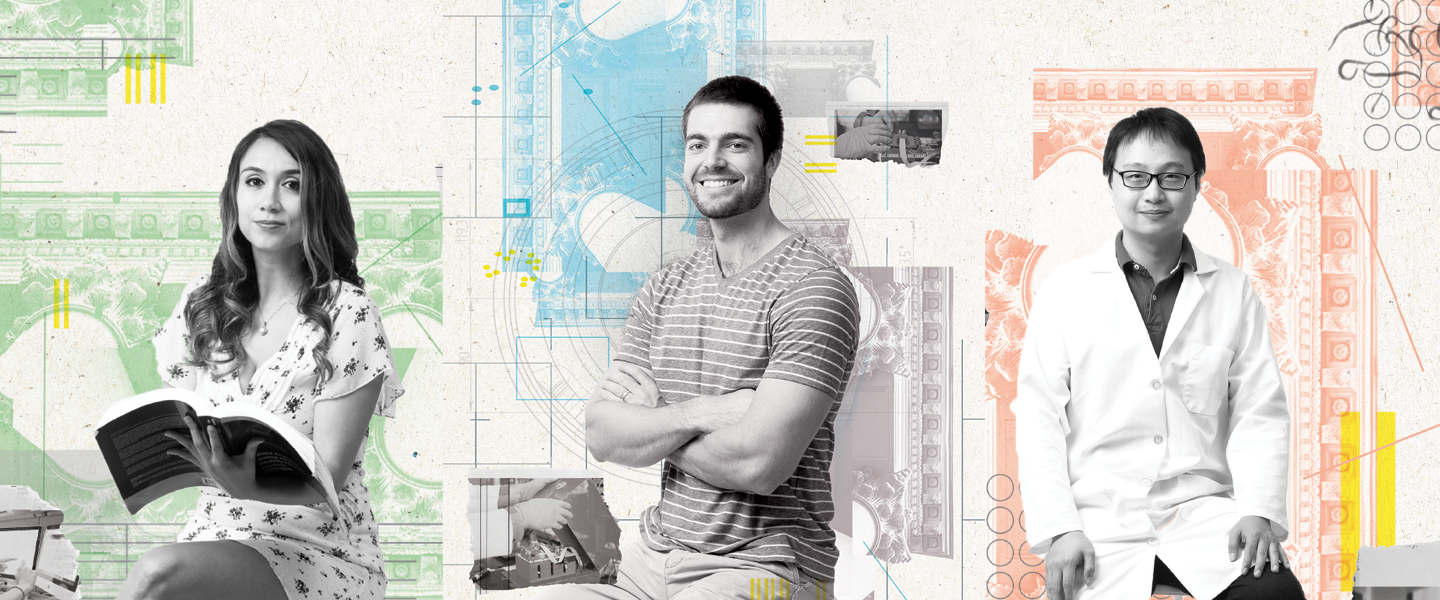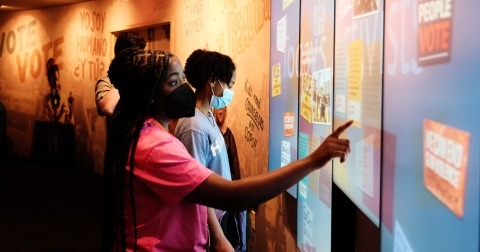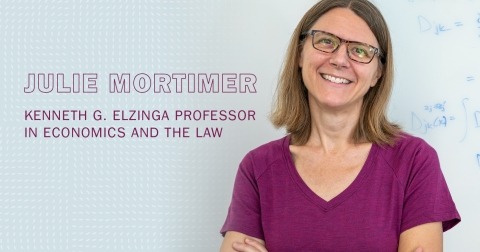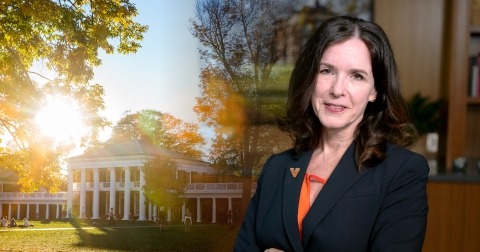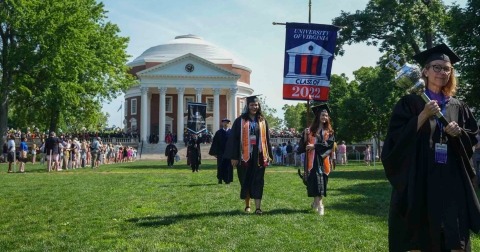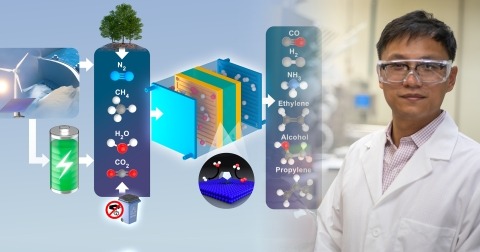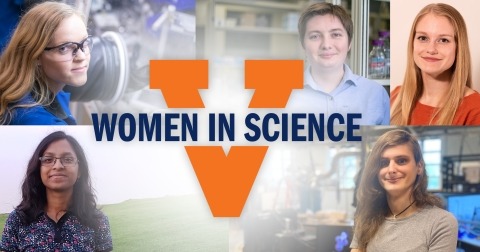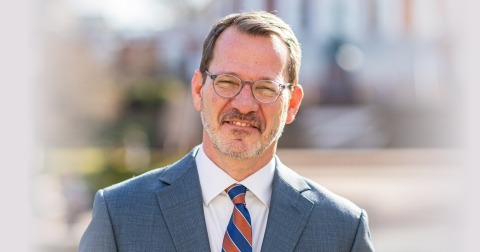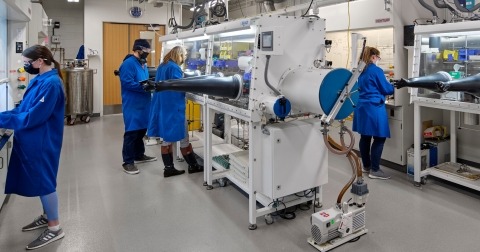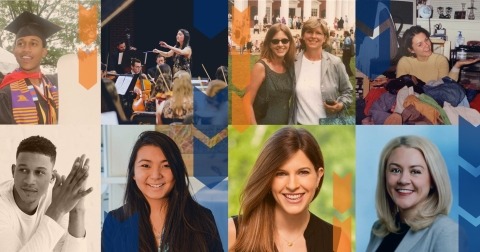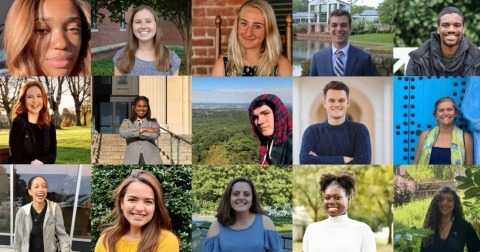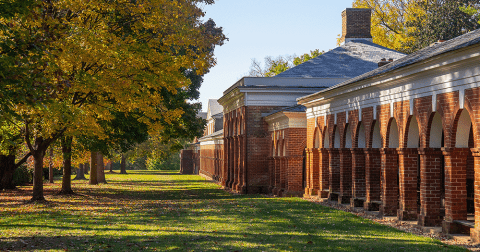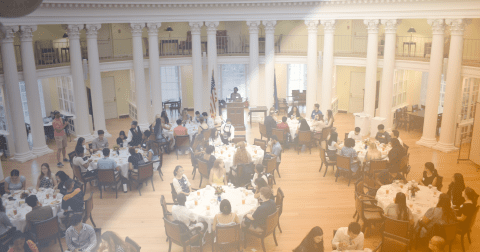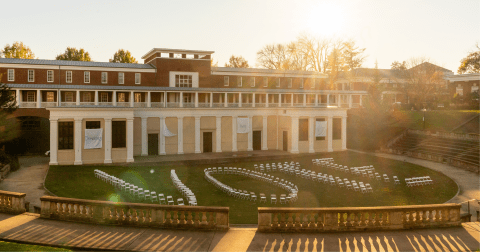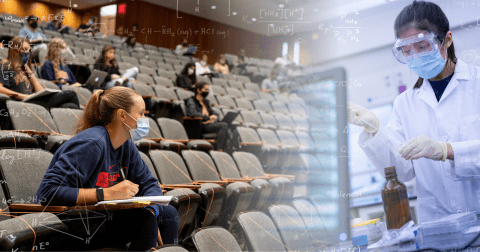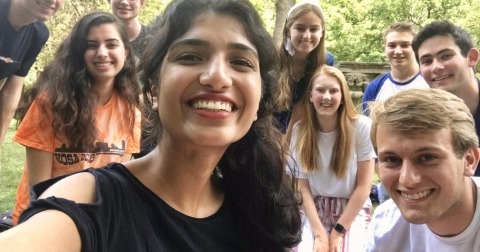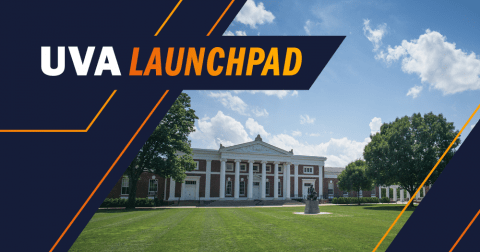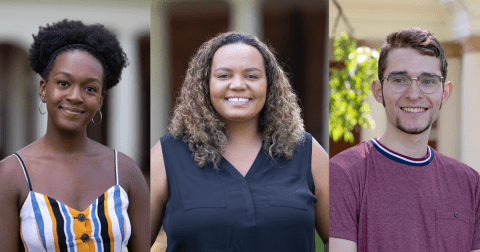Taking On The World's Grand Challenges
By John Carfagno
To those unfamiliar with the inner workings of a research university, graduate students may appear to maintain a low profile. They seemingly operate in the background, serving as teaching assistants for undergraduate classes and aiding the research efforts of faculty members. However, the elite students recruited by the Graduate School of Arts & Sciences are also refining their own paradigm-shifting research while helping to drive the University of Virginia’s academic mission.
“Graduate students and the Graduate School are core to everything we do,” said Ian Baucom, UVA’s Buckner W. Clay Dean of Arts & Sciences. “We know that we cannot advance research and discovery if we do not have faculty members working with grad students in their labs, in their seminars, and burrowing through archives with them. We need this blend of elite faculty and elite graduate students to drive our mission and for the global common good.”
Since his arrival at UVA in 2014, Baucom has worked with colleagues across Grounds to advance the Arts & Sciences research mission and to further strengthen graduate programs. Those efforts have helped lure to the Graduate School an international cohort of top students. Here is a glimpse of the work of three such graduate students from the Departments of Chemistry, Politics and Biology.
Faster justice for sexual assault survivors
Chemistry graduate student Charlie Clark’s research offers an example of the far-reaching potential of microfluidic chemistry as a critical law-enforcement tool. According to Clark, it typically takes law-enforcement agencies 80 days to process evidence from a reported sexual assault. There are many reasons for this delay, but Clark says it ultimately comes down to the large numbers of samples that need to be tested and the difficult protocols required to extract DNA evidence that can be used in court.
“Imagine victims waiting up to three months to find out if their attackers might be brought to justice,” said the Roanoke, Virginia, native, who is focused on developing new chemical separation techniques that can be applied to sexual assault samples.
One day, Clark’s techniques could enable law-enforcement agencies to significantly reduce the backlog and processing time of sexual assault evidence collection kits (SAECK), more commonly known as rape kits. The goal of Clark’s research is to develop an automated technique using microfluidic chemistry that can collect sperm cells from sexual assault samples much faster and with less chance of contamination than processing by a human analyst. He is extensively testing a prototype instrument using mock samples as well as real ones provided by law enforcement.
“With over 100,000 samples waiting to be tested in the U.S. alone, any improvement we make to this process is a necessary step towards justice for crime victims,” Clark said.
"Imagine victims waiting up to three months to find out if their attackers might be brought to justice." - Charlie Clark
Where politics and global trade meet
Aycan Katitas came to the United States from Istanbul, Turkey, to study the intersection of politics and economic globalization. More specifically, she came to UVA for the quality of the faculty in the Department of Politics, especially for the chance to work with David Leblang and Sonal Pandya, who serve on her Ph.D. dissertation committee.
“I was always interested in politics, so I decided to come to America to broaden my horizons,” Katitas says. “The best research is done in American universities.”
Katitas’s research seeks to explain areas of backlash against globalization. Part of her approach is studying how political candidates frame economic globalization through political ads.
She is analyzing data sets, for example, to see how everyday Americans view global trade — a highly relevant topic given the increase in the use of tariffs and the current, escalating trade war environment. This is an area that draws undergraduate student interest, and Katitas says teaching American students has been an important part of her own academic journey as a Ph.D. student.
“I was just so amazed by how smart these students are,” said Katitas, who admitted she was nervous when she first started teaching at UVA. “Very quickly, it became an enjoyable task, because we bonded so quickly, people were enjoying the class, and they said they learned a lot at the end of each semester.”
A worm’s insight on obesity
Wenfan Ke came to the United States from China with a passion for science, completing his undergraduate studies at the University of Iowa before arriving at UVA in 2016. In his study of human illness and disease, Ke is deeply exploring the causes and genetic markers associated with obesity.
“It’s affecting a lot of people in the U.S., and it is very, very complicated,” Ke said. “With obesity, you have so many different factors — environmental, dietary, and also even genetic factors.”
Ke is exploring how all these factors are integrated, and because it is so difficult to study in humans, he is using worms to study and get a foothold on the biological processes associated with obesity. Like Katitas, Ke is also working with under-graduate students. He is currently mento-ring two students on his obesity project, giving them great experience through undergraduate research. Ke hopes that eventually, his work can lead to the devel-opment of a drug that can treat obesity to improve human health.
“During my undergrad career, I participated in laboratory research a lot, working in three different labs,” Ke said.
That drove his interest in biology with a focus on human biology and the causes of illness. To answer his questions, Ke knew he needed the knowledge and the additional training in scientific methods that only graduate school could provide him.
“If you want to do science, you need equipment to perform the experiments,” Ke said, “and UVA has what I need.”
Along with the equipment and having the right tools for the job, Ke cites the strength of UVA’s biology department and its professors.
“All the professors are so knowledge-able, and everybody is so friendly,”
Graduate Education as a Strategic Investment
While advancing the Arts & Sciences research mission through the support of the research initiatives of Ke and other ambitious graduate students, the efforts to further strengthen graduate programs create another positive ripple effect. Within the College, the top-ten rankings of nationally esteemed departments such as the Department of English are based, to a significant extent, on the quality of their graduate programs and the elite graduate students they lure. As described by Katitas and Ke, elite graduate students play a key role in the collaborative process of teaching and mentoring undergraduates, enhancing the University’s well-deserved global reputation for its undergraduate experience.
"Graduate school is no joke. You don't only have to consume knowledge, you also have to produce knowledge." - Aycan Katitas
Arts & Sciences’ continued ambitions to elevate more of its highly regarded departments at the top of national rankings depend on further support of graduate students and the Graduate School, Baucom said. To facilitate the best route forward, Baucom has coordinated an examination of the Graduate School’s current state and its future ambitions to make UVA more competitive with the most elite programs in the nation and around the world. Under his guidance, significant investments have been made in the Graduate School (from the Arts & Sciences budget, the University’s Strategic Investment Fund, and external sources such as the National Science Foundation) to help draw more of the most talented graduate students and researchers to UVA.
This has given the Graduate School the seed funding that it needed, but these investments must be sustained — and more importantly, increased — to compete with other top universities. In vying with higher echelon programs for doctoral students, UVA increasingly competes with other universities offering students living support in the range of $30,000 and up, compared with the $22,000 to $28,000 currently offered by the Graduate School to students. To be more competitive and to advance the research mission in strategic ways, supporting graduate fellowships is critical (see page 16 for details on fellowships and the Graduate Education Initiative as a component of the Honor the Future Campaign).
“This is a game-changer for us, so we need to make sure that our strategy for the Graduate School maps on to our broader research strategy,” Baucom said. “We’re beginning to create a cluster of Graduate School fellowships in key research areas — so as we’re bringing in elite faculty, as we’re building out our lab capacity, we’re making sure we can recruit cohorts of graduate students into those programs.”
According to Baucom, this is a unique model for higher education and will enable UVA to recruit the best Ph.D. students to advance knowledge.
The Graduate School is seeing early success with its new Dean’s Doctoral Fellowship, which is a fellowship package designed to enable UVA to successfully recruit under-represented students with the ambitious goal of being the most diverse, the most inclusive, and the most equitable graduate school in the country. This academic year, the Dean’s Doctoral Fellowships attracted 17 graduate students to UVA whom the School would not have been unlikely to enroll in the past.
“We’ve made the decision to comprehensively invest in the Graduate School to make sure it’s on par with the excellence in everything else we do,” Baucom said.

